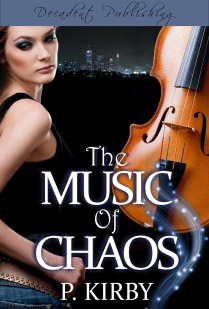Alternative title: How Critters Online Workshop Taught Me to Sympathize with Editors
So there it sits. Like a big ole zit on the nose of my (already crappy) day. The form rejection letter. Besides the sense of crushing defeat, there’s that whiny girl voice in my head, who opines, snottily, “You couldn’t even spare me a hint, a sentence, as to why my manuscript is Teh Big Fail?”
For the first emotion–defeat–the only cure is time. (Or alcohol.) But the second–irritation–is easily soothed by my experience at Critters Online Workshop.
I’ve been a member of Critters, off and on, for about five years. I’ve critiqued at least 700 manuscripts, including a half dozen novel length works. To maintain good standing at Critters, you critique approximately 3-4 manuscripts a month. Each week, you pick a story from the pile and have at it.
The experience provides an eye-opening glimpse into what a slush reader sees every day: the good, the bad, and the blaaaaah.
When it comes to critiquing, really bad manuscripts are a cake walk, easy peasy, give me some more. Well, sort of. One still has to read the thing, and slogging through a train wreck of a story is like sticking pins in your eyes. But, provided you survive the reading, there’s no shortage of helpful criticism to be handed out. I select the story’s most egregious sins, rather than dogpiling the poor writer with a twenty-page essay on “Why this Sucks.”
The next easiest is the great manuscript. A rarity, for sure. Of course, the problem here is that, in the absence of criticism, one must resort to praise. And coming up with 300 words of positive is harder than it seems. “I loved this story. The voice just sparkles, and your protagonist is strong, sometimes abrasive, and yet totally likable. And the ending, while unpredictable, makes perfect sense.” That’s, what, 27 words? Only 273 to go. No manuscript is perfect, so I can usually find a few minor issues to pad my word count. “This sentence lacks clarity. Does ‘he’ refer to Roger or Eric?”
The majority of manuscripts I’ve read, however, fall into the mediocre category. The writing is competent, or at least, not a study in “What not to do in fiction.” But as I read, my attention wanders. Before long, I’ve clicked on Firefox and I’m on my favorite blog. The mediocre manuscript may be plagued with as many problems as the really bad, but the issues are usually subtler. There are no easy outs; no picking at cardboard characters and plots holes that would swallow an elephant.
As a writer, I’ve probably learned more from critiquing the bland manuscript, because I’m forced to really look at what makes fiction work.
My experience at Critters would suggest that a preponderance of manuscripts in slush aren’t horrible. Instead, they are an uninspiring mediocre. Finding constructive criticism for one dull-as-a-butter knife manuscript is hard enough. But for the hundreds that pass an acquiring editor’s desk?
Of course, this all leads to the inevitable conclusion. My submission, the precious widdle child of my imagination, is the literary equivalent of Ambien.
Somebody get me some booze.



